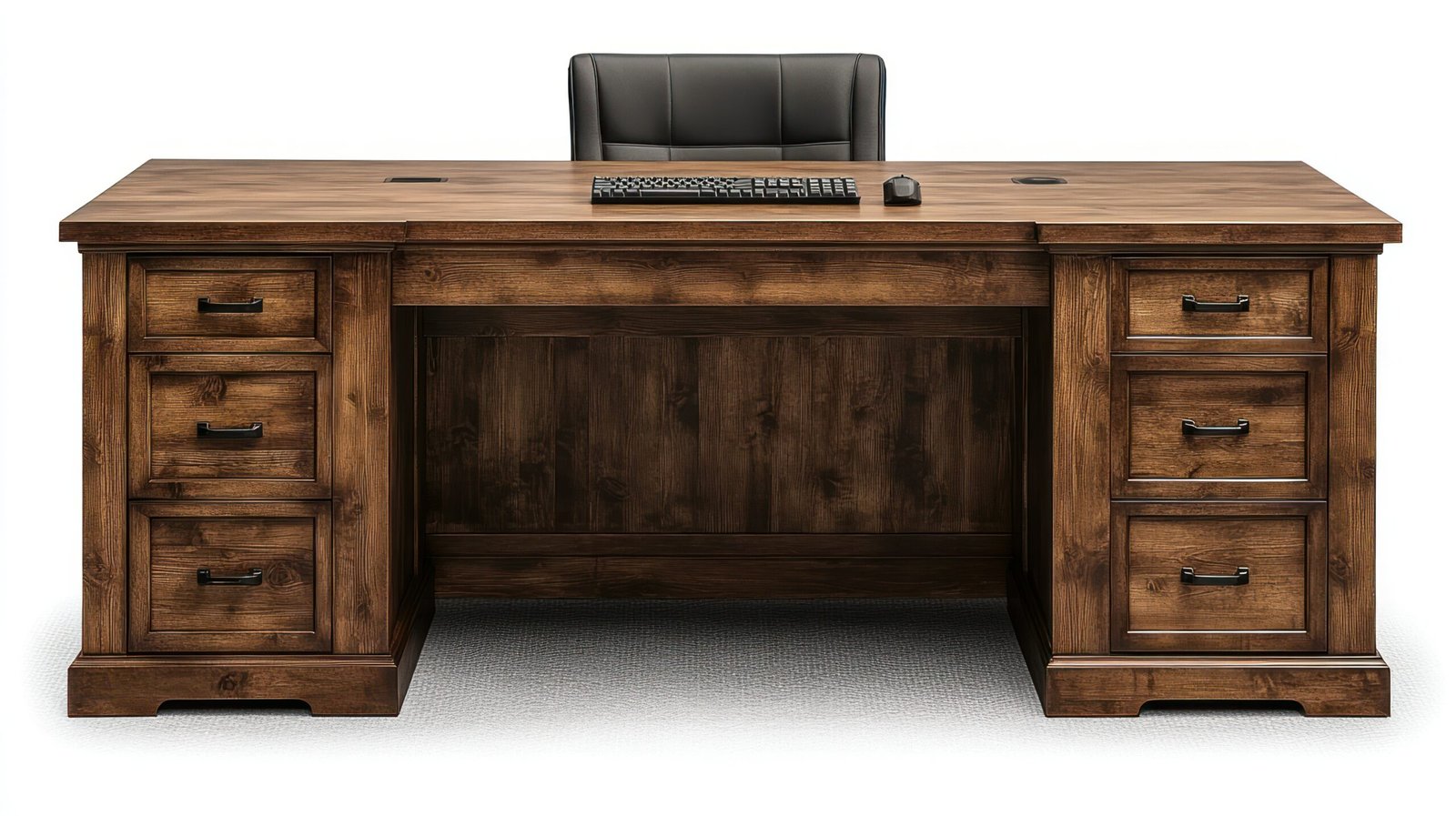Needless to say, that a home office has evolved from a luxury into a necessity in this era of remote work. While aesthetics, technology, and ergonomic furniture often steal the show, one humble but highly functional piece often goes underrated: the desk with drawers. Though it may seem like a standard feature, this single design choice carries both subtle and obvious benefits that can dramatically improve your workflow, organization, and overall satisfaction with your home office setup.
Here’s why a desk with drawers is a must-have for any productive home workspace.
Built-In Storage and Organization
The most apparent benefit of a desk with drawers is the storage it provides. From notebooks and pens to documents, tech accessories, and chargers, home office generates clutter like no other. Thankfully, drawer system gives you an easy way to sort, organize, and store these items within arm’s reach. This keeps your desktop clear and your work zone tidy, which in turn helps reduce visual stress and distraction.
Easy Access to Essentials
Drawers give you quick access to frequently used items without needing to leave your seat or sift through storage bins or shelves. Whether it’s a calculator, post-it notes, or a USB stick, having a designated space for your everyday tools streamlines your workflow. Unlike open shelving, drawers hide the clutter while keeping it conveniently close.
Enhances Professionalism
Whether you’re on a video call or hosting clients in person, a neat and organized workspace reflects professionalism. A desk with drawers helps you maintain that polished appearance effortlessly. You won’t be scrambling to clear off your desk when someone rings, and you’ll always have the tools you need close at hand.
Multifunctional Use Beyond Work
Another understated benefit of a desk with drawers is its versatility. When your workday ends, your desk can double as a craft station, a student homework hub, or even a bill-paying station for the family. The drawers provide space to compartmentalize these various roles without mixing work with leisure or personal tasks.
Encourages a Clean Desk Surface
A clutter-free desk is more than just pleasing to the eye; it improves concentration and productivity. Studies have shown that physical clutter can reduce your brains ability to focus and process information. Drawers encourage clean habits by providing a place to “put things away” instead of leaving them scattered on your work surface.
Psychological Comfort
There’s something calming about knowing everything you need is right where it should be. Drawers offer a sense of control and completeness to your workspace. You’re not just sitting at a table- you’re sitting at a fully functional command center. This psychological comfort fosters a more settled and professional mindset, even if you’re working in your pajamas.
Boundary Creation Between Work and Home Life
Separating your work and personal life can be a challenge in a home office, especially if your workspace is part of a shared room. Drawers allow you to store away your professional materials at the end of the day, helping create a physical and mental boundary between work hours and personal time. It’s a subtle shift that signals the end of your workday, which is essential for work-life balance.
Customization Options
Many modern desks come with modular drawer systems, allowing you to choose the size, placement, and number of drawers. Whether you need deep drawers for files or shallow ones for stationery, you can find a desk that suits your specific workflow. This customization adds to both the aesthetic and functional appeal of your home office.
To supplement this, a standalone chest of drawers can be a valuable addition to any home office, providing extra storage for files, supplies, and personal items. Unlike desk drawers, which are limited in number and size, a separate unit offers a greater capacity for organization. By keeping non-essential items in this piece of furniture, you can maintain a clean, focused workspace on your desk, which is essential for productivity
Security and Privacy
Some desks with drawers also come with locking features, giving you a secure space for sensitive documents, expensive tech, or private items. This small feature can go a long way in maintaining your privacy and protecting valuable information in shared households.

